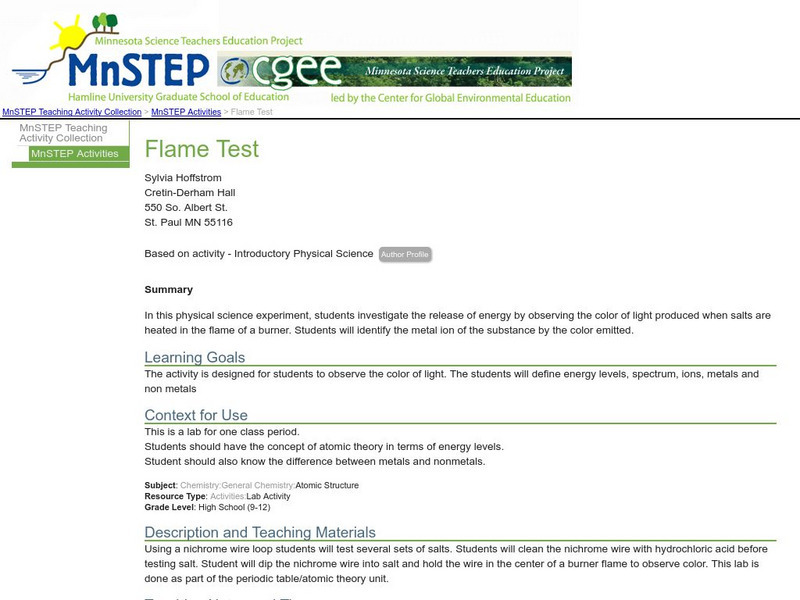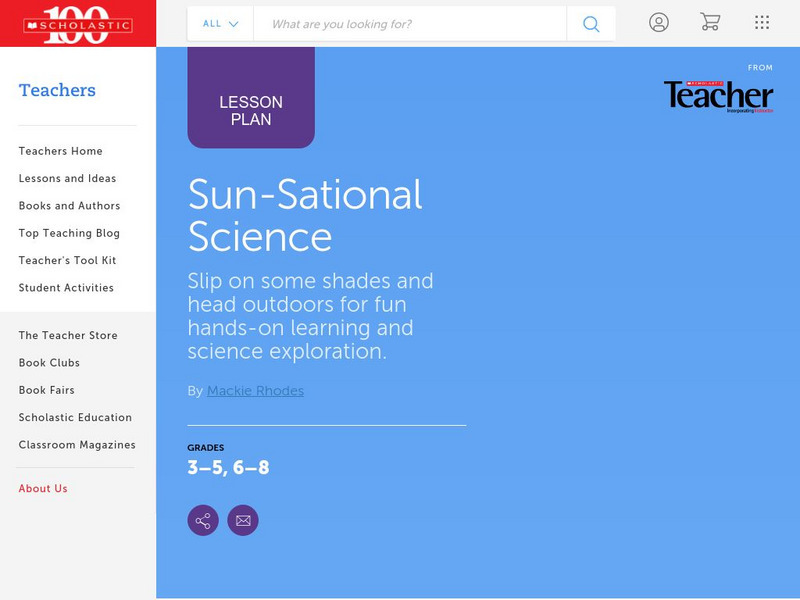Hi, what do you want to do?
Science Buddies
Science Buddies: Project Ideas: Huddle and Cuddle: How Puppies Keep Warm
In this mammalian biology science fair project, students will determine how much huddling reduces heat loss in warm-blooded animals. The Science Buddies project ideas are set up consistently beginning with an abstract, objective, and...
Science Buddies
Science Buddies: Project Ideas: How Horses Keep Warm in the Wind
In this mammalian biology science fair project, students will learn about methods of heat transfer and determine the best direction in which horses should stand in a cold wind to maintain their core temperature. The Science Buddies...
National High Magnetic Field Laboratory
Magnet Academy: James Joule
James Prescott Joule experimented with engines, electricity and heat throughout his life. Joule's findings resulted in his development of the mechanical theory of heat and Joule's law, which quantitatively describes the rate at which...
Science Education Resource Center at Carleton College
Serc: Why Is the Earth Still Hot Inside?
In this lesson, students conduct heat transfer experiments to investigate why the Earth is still hot at its core, even after billions of years since its formation. They will learn that the rate of heat transfer is dependent on an...
Science is Fun
Science Is Fun: The Fireproof Balloon
In this experiment, two balloons are each placed over a lighted match, but the one that has had water placed inside it does not burst. Includes an explanation of why that is so.
Museum of Science
The Atoms Family
Let this classic family of monsters guide you as you learn about energy. Interactive exercises, experiments, and demonstrations help to build knowledge and raise questions.
Museum of Science
Museum of Science and Industry: Online Science: Get the Porridge Just Right
Step-by-step illustrated instructions for an experiment investigating the loss of heat in three bowls of porridge.
Exploratorium
Exploratorium: Science Snacks: Give and Take
An activity for students to explore how dark-colored materials absorb and emit more energy vs. light-colored material.
Bill Nye
Bill Nye: Burn Rubber
This tutorial from Bill Nye explains how to perform a simple experiment with a rubber band. The experiment demonstrates how friction can dissipate energy as heat.
Science Fun for Everyone
Science Fun: Polar Bear Blubber
How can polar bears live in such cold climates? In this experiment, you will make your own blubber to understand how polar bears stay warm.
TeachEngineering
Teach Engineering: Newton's Law of Cooling
Middle schoolers come to see the exponential trend demonstrated through the changing temperatures measured while heating and cooling a beaker of water. This task is accomplished by first appealing to students' real-life heating and...
Science Buddies
Science Buddies: A Matter of Degrees: Tilt of Earth's Axis Affects the Seasons
In this science fair project, use a globe and a heat lamp to investigate how the angle of the Sun affects global warming. This project includes the objective, background questions, a list of all the materials you'll need, and the...
Michigan Reach Out
Solar S'mores
Students can make s'mores without using a bonfire. This experiment is great to use with the links "Materials that Absorb Solar Energy" and "A Solar Heat Experiment."
SRI International
Performance Assessment Links in Science: Ice Melting
A lesson plan for guiding students through a simple research experiment focused on transfer of energy is described for teacher administration and student explanation. Also includes a detailed rubric for evaluating student work.
Other
L in C Online: Three Little Pigs
An energy transfer project for junior high school students is presented and described. Takes the form of a teacher lesson plan. Students may be able to extract some ideas for a project or experiment.
Educaplus (Jesús Peñas Cano)
Educaplus: Calorimetria [In Spanish]
Practice with the calorimeter and calculate the specific heat of different substances.
Bill Nye
Bill Nye: Burn Rubber
Try this at-home science experiment to learn what happens when you repeatedly stretch a rubber band.
Bill Nye
Bill Nye: Sock It to Me
Try this at-home science experiment to learn how warm water (sweat) makes us feel cooler.
Science Education Resource Center at Carleton College
Serc: Flame Test
In this physical science experiment, students investigate the release of energy by observing the color of light produced when salts are heated in the flame of a burner. Students will identify the metal ion of the substance by the color...
Scholastic
Scholastic Instructor: Sun Sational Science
Discover more about the sun when you visit this educational resource. The content of this site includes solar fun facts, experiments, and activities.
Exploratorium
Exploratorium: Science Snacks: Pie Pan Convection
In this experiment, students observe what happens when a pan of soapy, colored water is heated. They will see that convection currents cause the fluid to rise and sink in a localized convection cell.
TOPS Learning Systems
Tops Learning Systems: Top Science: Conduction and Convection [Pdf]
Experiment investigating conduction and convection of heat in water.
Other
60 Second Science: Rainbow Gel
Examine mixtures made from different substances, and discover how to make gel.
PBS
Pbs Teachers: Hot and Cold Water Experiment
Demonstrate the relationship between water temperature and density using two clear plastic soda bottles.





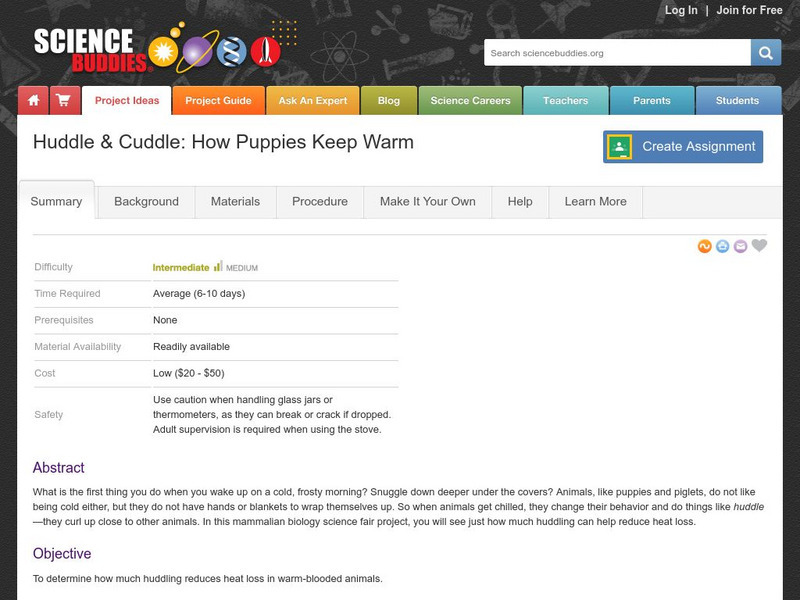




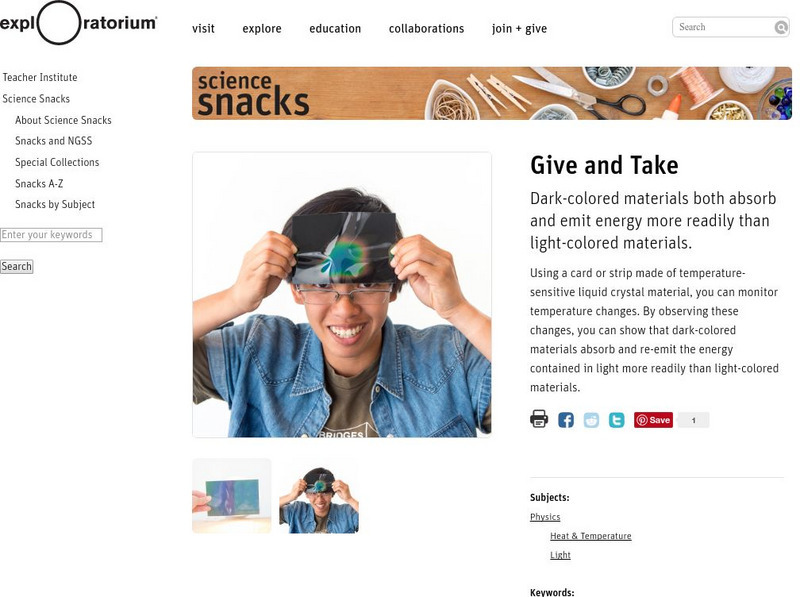
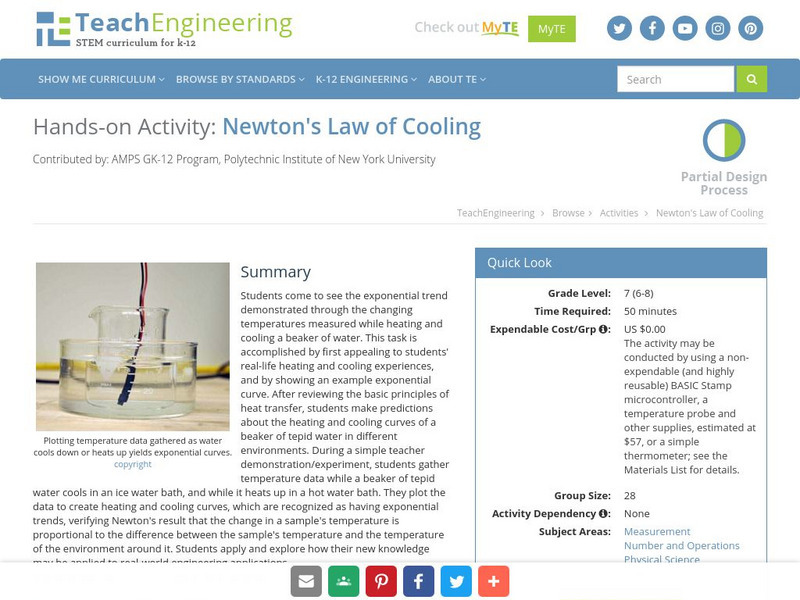

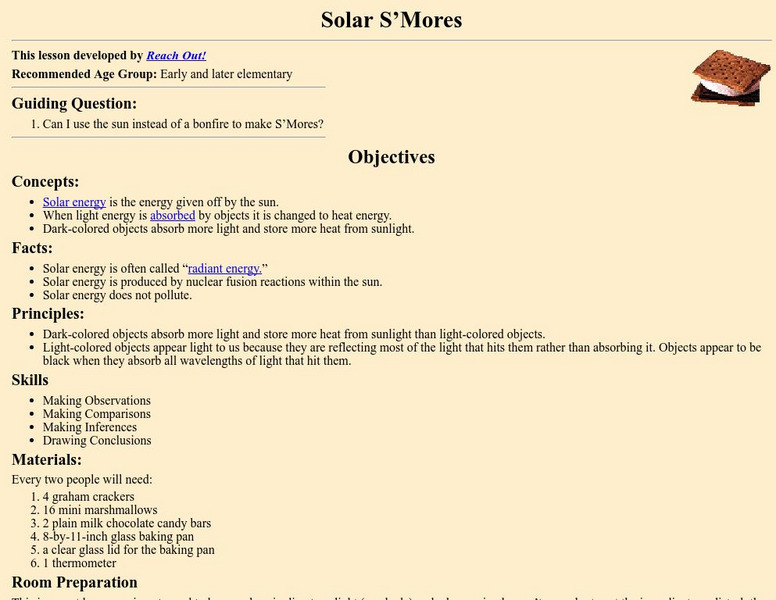
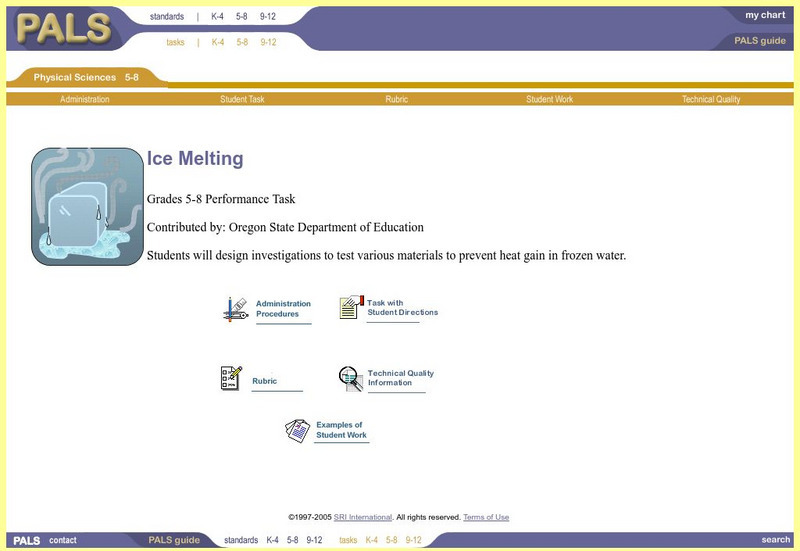
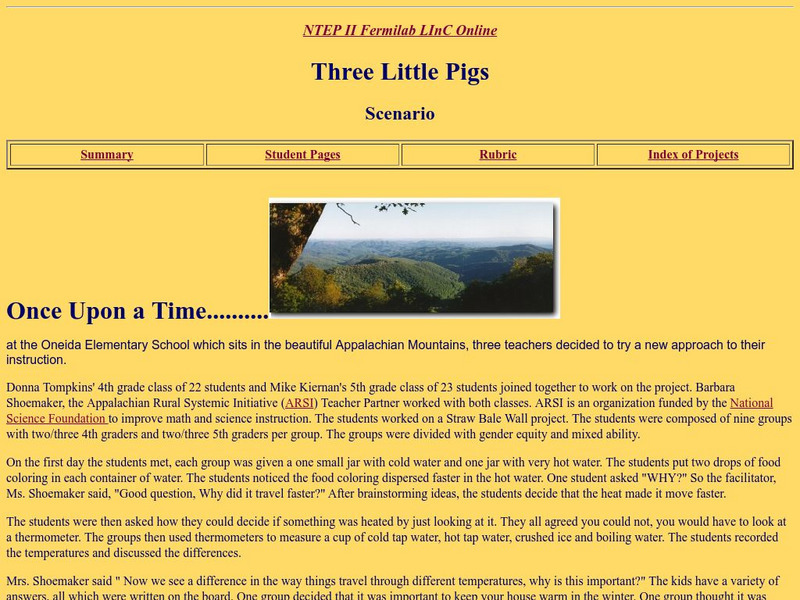
![Educaplus: Calorimetria [In Spanish] Activity Educaplus: Calorimetria [In Spanish] Activity](https://content.lessonplanet.com/knovation/original/366822-e58f9ef2399b6d28695cbc1d7c604def.jpg?1661772970)
